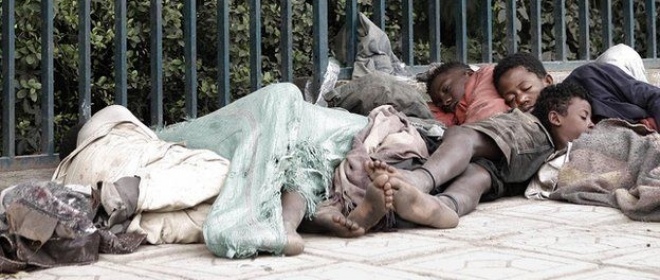

Frammenti Africani è un resoconto giornalistico di tematiche complesse del Continente Africano, futuro epicentro economico mondiale, dove coesistono potenze economiche e militari, crescita economica a due cifre, guerre, colpi di stato, masse di giovani disoccupati e una borghesia in piena crescita.
Un mosaico di situazioni contraddittorie documentate da testimonianze di prima mano e accuratamente analizzate per offrire un'informazione approfondita sulla politica, economia e scoperte scientifiche di un mondo in evoluzione pieno di paradossi.
Fulvio Beltrami
Originario del Nord Italia, sposato con un'africana, da dieci anni vivo in Africa, prima a Nairobi ora a Kampala. Ho lavorato nell’ambito degli aiuti umanitari in vari paesi dell'Africa e dell'Asia.
Da qualche anno ho deciso di condividere la mia conoscenza della Regione dei Grandi Laghi (Uganda, Rwanda, Kenya, Tanzania, Burundi, ed Est del Congo RDC) scrivendo articoli sulla regione pubblicati in vari siti web di informazione, come Dillinger, FaiNotizia, African Voices. Dal 2007 ho iniziato la mia carriera professionale come reporter per l’Africa Orientale e Occidentale per L’Indro.
Le fonti delle notizie sono accuratamente scelte tra i mass media regionali, fonti dirette e testimonianze. Un'accurata ricerca dei contesti storici, culturali, sociali e politici è alla base di ogni articolo.
TAGS
BLOGROLL
Apr 14
di Fulvio Beltrami

Fulvio Beltrami 14/04/2020
The latest WHO report on the spread of contagion in the country speaks of 65 positive cases. The Addis Ababa government has imposed containment and preventive measures that are diligently respected by all citizens of one of the most populated African countries on the Continent. Homeless people represent 1% of the population. 108,000 Ethiopians out of 109.2 million citizens. They live on the streets without work, in precarious conditions and at the mercy of human charity. The social scourge is transversal both in age, sex and social status. Men who have lost their jobs, former combatants of the war of liberation against the DERG Stalinist regime, widowed women, young mothers repudiated by families for conceiving without being married, street children, the elderly. In the capital Addis Ababa alone there are 32,000 homeless people.
This army of desperate people are now exposed to the risk of contagion and, despite themselves, they represent a bacteriological bomb that can jeopardize the health of the entire nation. Aware of this risk and of the moral and Christian duty of solidarity towards the weak side of the society, the Ethiopian government has launched an emergency plan for the homeless, making the necessary financial resources available.
On Wednesday 8 April the Minister of Labor and Social Affairs signed a partnership agreement with four Ethiopian charitable organizations operating nationwide to initiate an expensive but necessary homeless rescue and rehabilitation plan.
The plan is to offer to all homeless in the country the opportunity to be hosted in specially equipped reception centers where they can take advantage of Covid-19 diagnostic tests. Infected people will enjoy free health care. For the "healthy" individuals, a socio-economic rehabilitation program is envisaged with the aim of reintegrating them into the productive fabric of the country or becoming permanent beneficiaries of social assistance by directing them to socially useful voluntary activities.
The program was launched in Addis Ababa and 10 other Ethiopian cities including Makalle, Gambella, Gondar. “The precarious living conditions of the homeless prevent the respect of social distance and prevention measures. They also prevent confinement because these brothers of ours do not have permanent homes. We decided to intervene both to prevent the infection of the virus and defend public health and to try to permanently resolve this social scourge. The homelessness rehabilitation program will not be interrupted at the end of the health emergency but will continue until they are fully reintegrated into society "said the Minister of Labor and Social Policies.
With the classic Soviet zeal that still characterizes the Ethiopian government from the statements it is
immediately passed to the facts. 4,200 homeless people are already housed in rehabilitation centers in Addis Ababa. The problem related to official statistics remains to be solved. The government recognizes only 86,000 of the 108,000 homeless people in the country, for obvious reasons of national image as the government is extremely careful to offer the outside world the image of a continually developing Great Nation. In December 2019 Ethiopia launched its first satellite into orbit with the help of China. According to the charitable organizations, a delicate debate must be opened with the federal authorities in order to be able to review the official data and incorporate all the homeless people into the national bailout program.
The initiative undertaken by the Ethiopian government is a message of solidarity associated with the need to strengthen inclusive national socio-economic progress. A message that must not be ignored but emulated in its entirety. A message from a so-called "third world" country that teaches us that there is still a moral duty to help brothers in need especially during this terrible ordeal for humanity. From Ethiopia we receive a message of hope and resistance to this invisible enemy. A willingness to remedy the mistakes of a recent past based on the selfishness of economic growth at all costs.
A need to (Re) build a collective human soul capable of defeating the spirit of greed so that no one runs the risk of falling behind once this planetary health emergency has been overcome.
© Riproduzione riservata
541 visualizzazioni